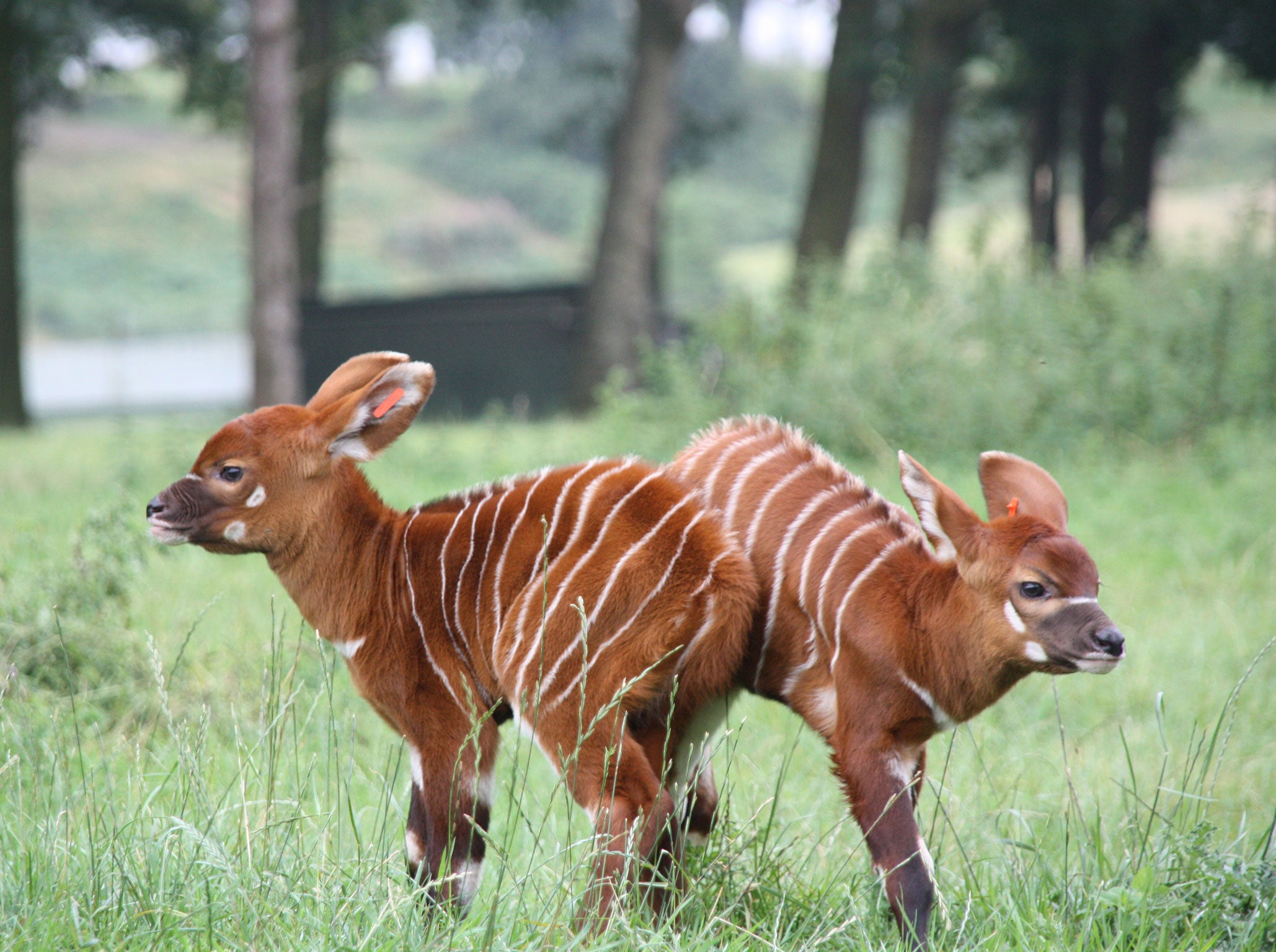Birth of rare twin bongo antelope calves welcomed by conservationists
Only 100 bongos antelopes survive in the wilds of East Africa

Conservationists have called the birth of rare twin bongo antelopes at a safari park in Bedfordshire “fantastic news”.
Their mother, nine-year-old Millie, gave birth to the twins in the 14-acre woodland habitat that makes up the ‘African jungle’ drive-through reserve at Woburn Safari Park, earlier in August.
With their striking striped brown and white hair, and distinctive white facial markings, the female calves are regarded by the European Endangered Species Programme (EEP) as “vitally important” to the species’ survival, BBC News reported.
Last year, the birth rate of bongo calves was heavily skewed with male arrivals, meaning the EEP is doubly pleased.
In their native East Africa, there are fewer than 100 bongos in the wild, according to experts.
And in captivity, only 15 sets of bongo twins have been born worldwide, with only two sets surviving, the Park said in a statement.
Keeper Chris Smart, told BBC News: "The arrival of these two new calves is not only fantastic news for the park, but also for the EEP as births of bongo calves last year were predominantly male.
"These calves are particularly beautiful. With so few left in the wild, they are extremely important for the conservation of the species."
Keepers adopted a "hands off" approach to the birth, to allow the animals to behave as they would in the wild – including letting the mother choose where to give birth.
Millie is said to have chosen a grassy spot, with perfect conditions for her new-borns to find their feet. Having had three calves already, Millie is an experienced mother and has been very relaxed since giving birth.
While keepers watch closely to make sure the babies are feeding, the new family has been left to decide whether it wants to live in the park’s dedicated antelope house or elsewhere in the park.
Subscribe to Independent Premium to bookmark this article
Want to bookmark your favourite articles and stories to read or reference later? Start your Independent Premium subscription today.

Join our commenting forum
Join thought-provoking conversations, follow other Independent readers and see their replies